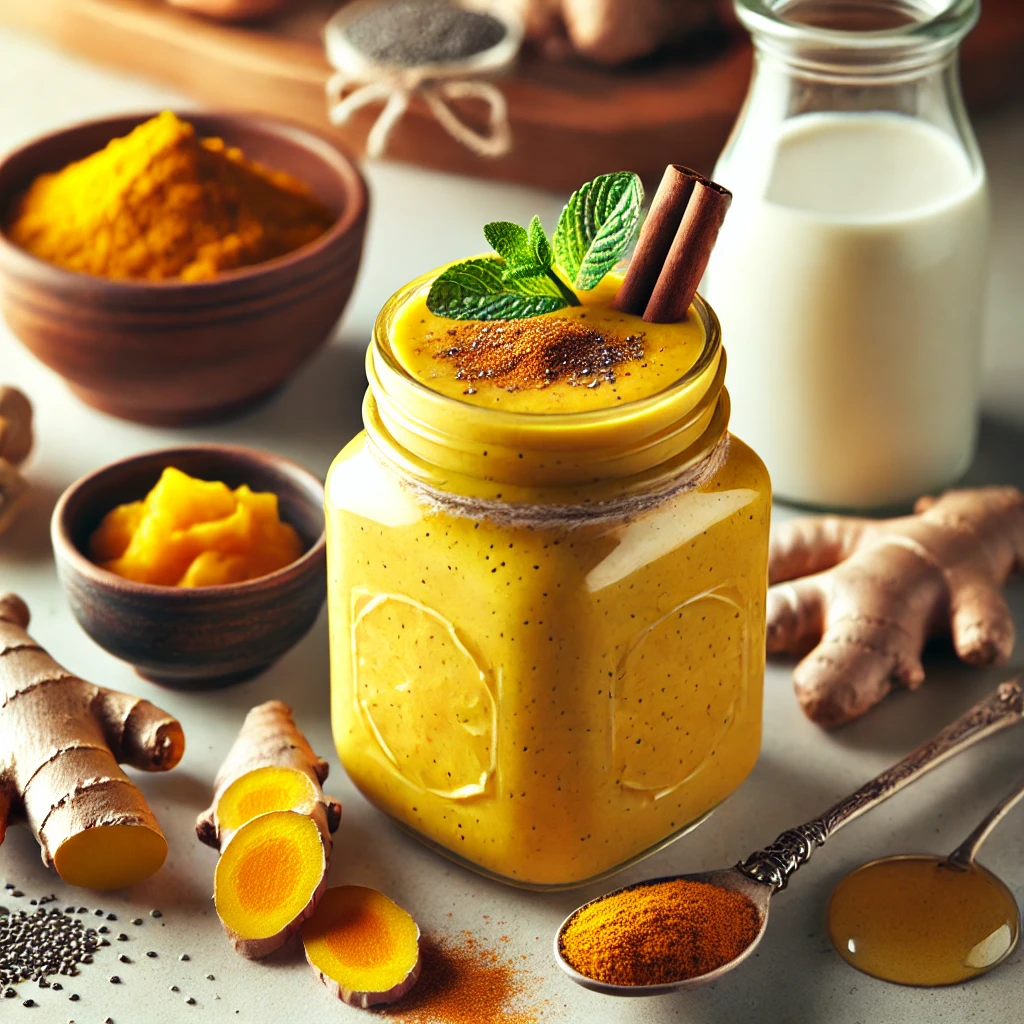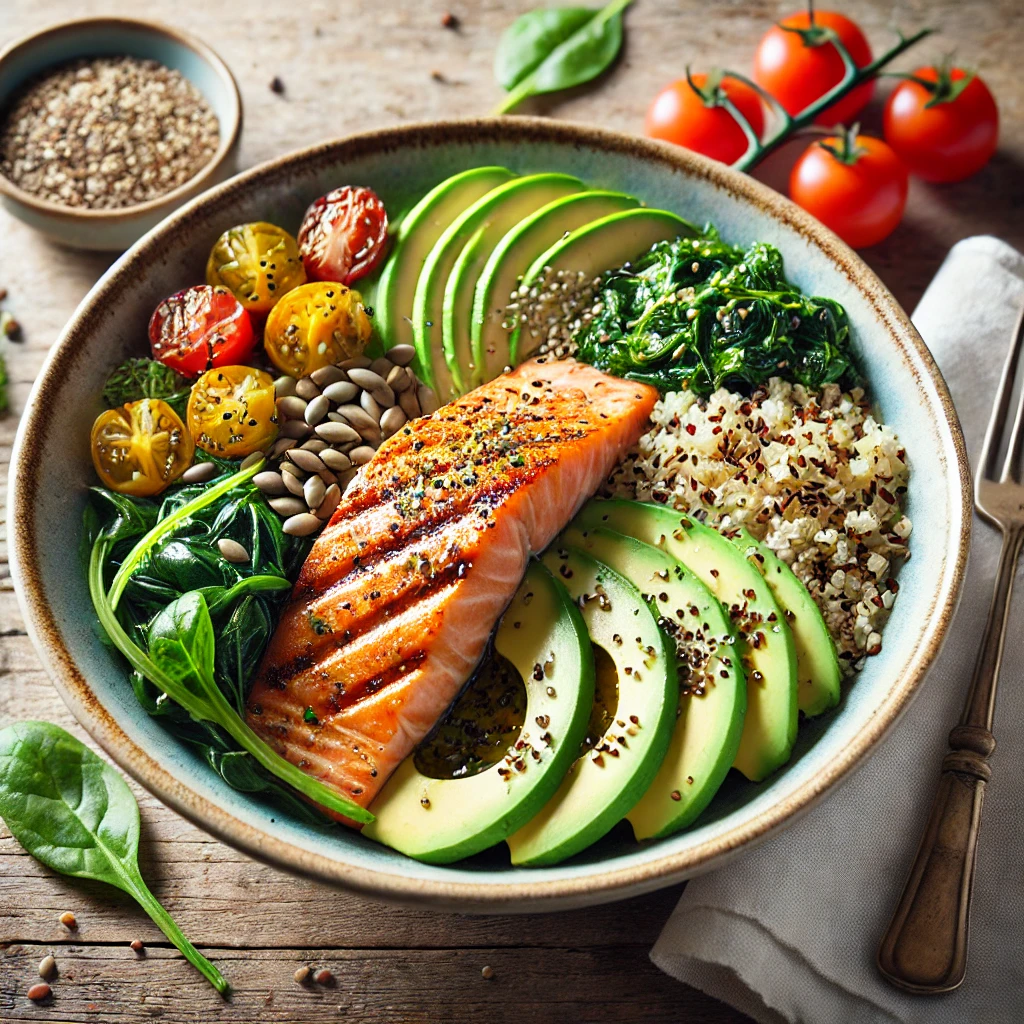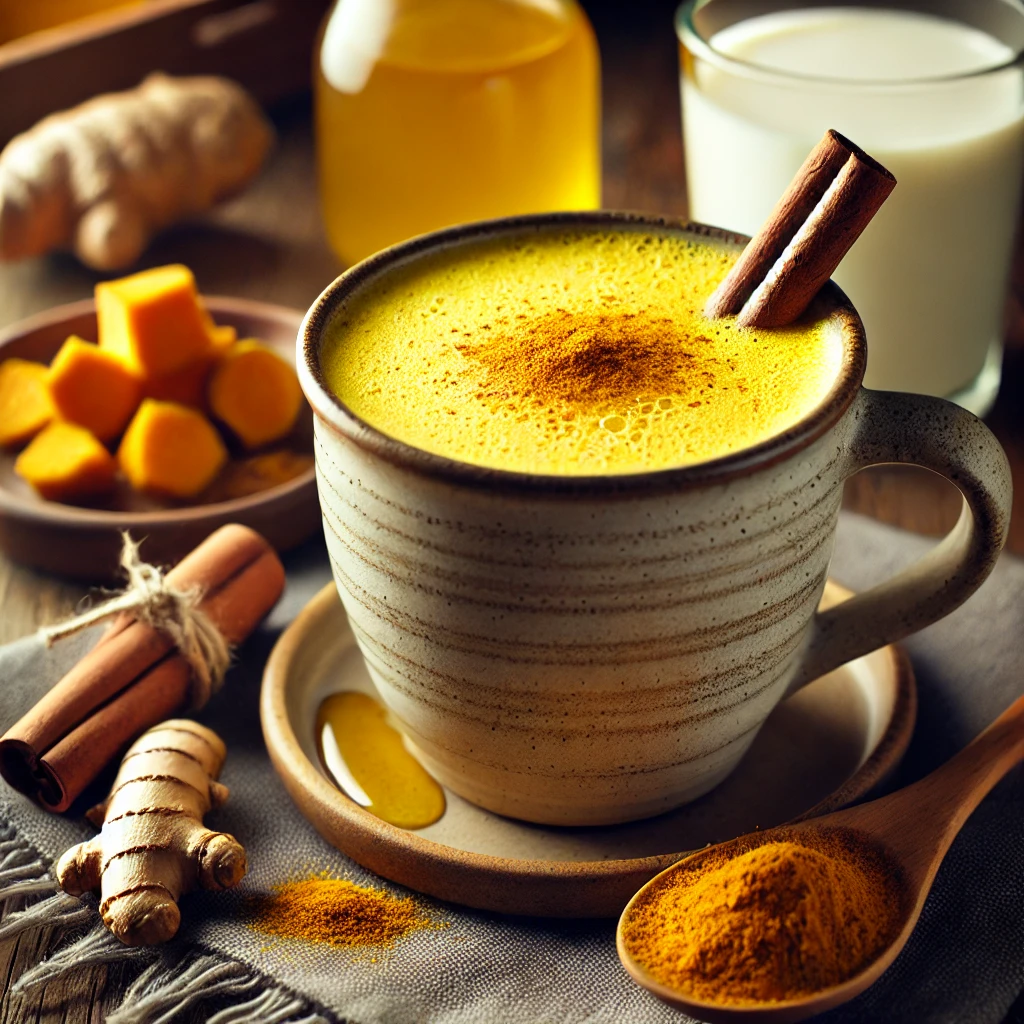
Adopting an anti-inflammation diet and incorporating natural remedies can help reduce inflammation, improve overall health, and enhance your quality of life.
Inflammation is a natural immune response that helps protect the body from injury and infection.
However, when inflammation becomes chronic, it can contribute to various health conditions, including heart disease, arthritis, diabetes, and even certain cancers.
In this article, we’ll dive into the causes of inflammation, the best anti-inflammation foods, and the power of clean eating recipes that support an inflammation diet.
Plus, we’ll share some easy anti-inflammation recipes to help you get started.
1. What is Inflammation?
Inflammation is a complex biological response that occurs when the body detects harmful stimuli, such as infections, toxins, or physical injuries.
It is the body’s defense mechanism, designed to initiate healing and protect against further harm.
While inflammation is essential for recovery, it can become a health concern when it turns chronic, lasting for weeks, months, or even years.
Chronic inflammation is often linked to lifestyle factors such as diet, stress, and environmental toxins.
Causes of Inflammation
Several factors can contribute to chronic inflammation:
✅ Diet – Consuming excessive processed foods, refined sugars, and unhealthy fats increases inflammation.
✅ Sedentary Lifestyle – A lack of exercise contributes to inflammation and poor metabolic health.
✅ Chronic Stress – High-stress levels increase the production of inflammatory hormones such as cortisol.
✅ Environmental Toxins – Pollution, chemicals in food packaging, and pesticides can contribute to inflammation.
✅ Poor Sleep – Sleep deprivation disrupts immune function and raises inflammatory markers in the body.
✅ Excess Alcohol & Smoking – Both increase oxidative stress and promote chronic inflammation.
Signs and Symptoms of Chronic Inflammation
If left unaddressed, chronic inflammation can manifest in various ways, including:
- Fatigue and low energy levels
- Joint pain and stiffness
- Digestive issues (bloating, constipation, IBS)
- Frequent infections or a weakened immune system
- Brain fog or difficulty concentrating
- Skin conditions like eczema, psoriasis, or acne
- Weight gain, particularly around the belly
By recognizing these signs early, you can take proactive steps to reduce inflammation naturally through dietary and lifestyle changes.
One of the most effective ways to combat chronic inflammation is by following an anti-inflammation diet.
2. How the Anti-Inflammation Diet Helps Reduce Chronic Inflammation

The anti-inflammation diet is a way of eating that focuses on whole, nutrient-dense foods that help combat oxidative stress, neutralize free radicals, and promote healing in the body.
Unlike the standard Western diet, which is often rich in refined carbs, unhealthy fats, and processed foods, the anti-inflammation diet prioritizes clean, whole ingredients that nourish the body.
How Does the Anti-Inflammation Diet Work?
The primary goal of this diet is to:
✅ Reduce Pro-Inflammatory Foods – Processed and sugary foods trigger inflammatory responses, so eliminating them is key.
✅ Increase Anti-Inflammatory Nutrients – Incorporating antioxidant-rich foods, healthy fats, and fiber helps combat chronic inflammation.
✅ Balance Blood Sugar Levels – A stable blood sugar level prevents insulin spikes, which contribute to inflammation.
✅ Support Gut Health – A healthy gut microbiome reduces systemic inflammation and supports immune function.
Scientific Benefits of the Anti-Inflammation Diet
✅ Reduces Risk of Chronic Diseases – Studies show that an anti-inflammation diet can help lower the risk of conditions such as heart disease, diabetes, arthritis, and Alzheimer’s.
✅ Improves Joint and Muscle Health – Nutrient-dense, anti-inflammatory foods help reduce pain and stiffness caused by inflammation-related conditions such as rheumatoid arthritis.
✅ Boosts Brain Health – Chronic inflammation is linked to cognitive decline and brain fog. A diet rich in antioxidants helps protect brain cells and enhances mental clarity.
✅ Supports Weight Management – Inflammation is often associated with weight gain, particularly around the abdomen. An inflammation diet supports metabolism and reduces fat accumulation.
✅ Enhances Digestive Health – A well-balanced anti-inflammation diet promotes gut health, reduces bloating, and prevents digestive disorders.
By making simple dietary swaps and focusing on clean eating recipes, you can naturally lower inflammation and feel more energized.
3. Best Anti-Inflammation Foods to Include in Your Diet
Now that you understand the benefits of an anti-inflammation diet, let’s explore the best anti-inflammation foods to incorporate into your meals.
These foods are packed with antioxidants, vitamins, and healthy fats that help combat inflammation at the cellular level.
1. Omega-3 Rich Foods
Omega-3 fatty acids are powerful anti-inflammatory compounds that help reduce inflammation in the brain, heart, and joints.
Top Omega-3 Foods:
- Fatty fish (salmon, mackerel, sardines, tuna)
- Chia seeds
- Flaxseeds
- Walnuts
- Hemp seeds
How to Incorporate:
- Add flaxseeds or chia seeds to smoothies.
- Enjoy grilled salmon with leafy greens for an omega-3 boost.
- Sprinkle walnuts over oatmeal or salads.
2. Antioxidant-Packed Fruits & Vegetables
Fruits and vegetables contain powerful plant compounds that help neutralize free radicals and reduce oxidative stress.
Best Choices:
- Berries – Blueberries, strawberries, raspberries, and blackberries are rich in antioxidants and polyphenols.
- Leafy Greens – Spinach, kale, Swiss chard, and arugula help detoxify the body and reduce inflammation.
- Cruciferous Vegetables – Broccoli, Brussels sprouts, and cauliflower contain sulforaphane, a compound known for its anti-inflammatory effects.
- Bell Peppers & Tomatoes – Both are high in vitamin C and carotenoids, which combat inflammation.
How to Incorporate:
- Blend berries into an anti-inflammation smoothie with almond milk.
- Sauté spinach with garlic and olive oil as a side dish.
- Roast Brussels sprouts with balsamic vinegar and walnuts for a crunchy, anti-inflammatory meal.
3. Healthy Fats
Healthy fats are essential for reducing inflammation and improving brain, heart, and joint health.
Best Choices:
- Extra virgin olive oil
- Avocados
- Nuts (almonds, walnuts, cashews)
- Coconut oil
How to Incorporate:
- Use olive oil as a dressing for salads.
- Add avocado slices to your morning toast.
- Snack on a handful of almonds or walnuts for a quick, anti-inflammatory boost.
4. Gut-Healing Foods
A healthy gut is crucial for reducing inflammation, as 70% of the immune system resides in the gut.
Best Choices:
- Fermented Foods – Kimchi, sauerkraut, yogurt, kefir, and miso contain probiotics that support gut health.
- Bone Broth – Provides collagen and amino acids that help repair the gut lining.
- Garlic & Onions – Natural prebiotics that feed beneficial gut bacteria.
How to Incorporate:
- Eat yogurt or kefir with berries for a probiotic-rich snack.
- Sip on warm bone broth for gut-healing benefits.
- Use garlic and onions in homemade soups and stir-fries.
5. Spices with Anti-Inflammatory Properties
Spices contain potent anti-inflammatory compounds that enhance the flavor of dishes while supporting health.
Best Choices:
- Turmeric (Curcumin) – One of the most powerful anti-inflammatory spices.
- Ginger – Reduces muscle pain and improves digestion.
- Cinnamon – Helps regulate blood sugar levels.
- Garlic – Contains sulfur compounds that support the immune system.
How to Incorporate:
Use garlic as a base for soups, sauces, and marinades.
Add turmeric and ginger to teas or smoothies.
Sprinkle cinnamon over oatmeal or coffee.
4. Top Natural Remedies for Reducing Inflammation

While following an anti-inflammation diet is one of the most effective ways to combat chronic inflammation, incorporating natural remedies into your daily routine can further enhance your health and healing.
These holistic approaches work synergistically with anti-inflammation foods to reduce inflammation at a cellular level, boost immunity, and promote overall well-being.
1. Regular Exercise
Engaging in physical activity is one of the most powerful ways to reduce inflammation naturally.
Exercise helps regulate immune function, improves circulation, and lowers inflammatory markers such as C-reactive protein (CRP).
Best Types of Anti-Inflammatory Exercise:
- Low-Impact Workouts – Walking, swimming, or cycling helps reduce joint pain and stiffness.
- Strength Training – Lifting weights builds muscle mass, which helps lower chronic inflammation.
- Yoga & Stretching – Yoga reduces stress hormones and promotes flexibility while decreasing inflammation.
- HIIT (High-Intensity Interval Training) – Short bursts of intense activity help regulate blood sugar and improve metabolism.
How to Incorporate:
- Aim for at least 30 minutes of movement per day to support an inflammation diet and overall health.
- Stretch in the morning to wake up your body and improve circulation.
- Take short walking breaks throughout the day to avoid long periods of sitting.
2. Stress Management & Mindfulness Practices
Chronic stress is a major contributor to inflammation.
When the body is constantly in “fight or flight” mode, it releases high levels of cortisol and inflammatory cytokines, which can damage tissues over time. Managing stress effectively can help reverse this cycle.
Best Stress-Relief Techniques:
- Meditation & Deep Breathing – Helps activate the body’s relaxation response and reduce inflammation.
- Journaling – Writing down thoughts and emotions helps process stress and release tension.
- Spending Time in Nature – Walking outdoors, hiking, or gardening lowers cortisol levels.
- Social Connections – Engaging with loved ones reduces stress and promotes mental well-being.
How to Incorporate:
- Start your day with 10 minutes of deep breathing or guided meditation.
- Keep a gratitude journal to focus on positive aspects of your life.
- Engage in relaxing hobbies like reading, painting, or cooking clean eating recipes.
3. Quality Sleep & Recovery
Poor sleep is closely linked to increased inflammation and a weakened immune system.
During sleep, the body undergoes repair processes, detoxifies, and restores hormonal balance.
Tips for Improving Sleep Quality:
✅ Maintain a Consistent Sleep Schedule – Go to bed and wake up at the same time every day.
✅ Create a Relaxing Night Routine – Avoid screens an hour before bed and engage in calming activities like reading or light stretching.
✅ Optimize Sleep Environment – Keep your bedroom cool, dark, and free from distractions.
✅ Limit Caffeine & Alcohol – Both can disrupt sleep quality and increase inflammation.
How to Incorporate:
- Try drinking turmeric or chamomile tea before bed for its anti-inflammation benefits.
- Establish a bedtime ritual that includes journaling, gratitude, or light stretching.
- Aim for 7-9 hours of restful sleep per night to allow the body to heal and recover.
5. Easy Anti-Inflammation Recipes to Try
One of the best ways to naturally reduce inflammation is by incorporating clean eating recipes made with anti-inflammation foods into your daily meals.
These recipes are not only delicious but also packed with essential nutrients, antioxidants, and healthy fats that help combat inflammation.
1. Anti-Inflammation Turmeric Smoothie

This smoothie is rich in antioxidants, omega-3s, and anti-inflammatory spices to promote healing and gut health.
Ingredients:
- 1 cup unsweetened almond milk
- ½ banana
- ½ teaspoon turmeric
- ½ teaspoon cinnamon
- 1 tablespoon flaxseeds
- ½ cup frozen mango
- 1 teaspoon honey (optional)
Instructions:
- Blend all ingredients until smooth.
- Pour into a glass and enjoy!
Why It Works:
- Turmeric contains curcumin, a powerful anti-inflammatory compound.
- Flaxseeds provide omega-3 fatty acids that reduce inflammation.
- Cinnamon helps regulate blood sugar, reducing inflammation triggers.
2. Omega-3 Power Bowl

This nutrient-packed bowl is perfect for lunch or dinner, featuring a combination of healthy fats, fiber, and protein.
Ingredients:
- 1 cup cooked quinoa
- ½ cup roasted salmon
- ½ avocado, sliced
- ½ cup sautéed spinach
- 1 tablespoon olive oil
- 1 tablespoon hemp seeds
- ½ lemon, squeezed
Instructions:
- Assemble all ingredients in a bowl.
- Drizzle with olive oil and lemon juice.
- Sprinkle hemp seeds on top and enjoy!
Why It Works:
- Salmon & hemp seeds are rich in omega-3s, essential for reducing inflammation.
- Avocado provides heart-healthy monounsaturated fats.
- Spinach is packed with antioxidants and essential vitamins.
3. Golden Milk Latte (Anti-Inflammation Drink)

A soothing, warm drink made with turmeric, ginger, and coconut milk to fight inflammation naturally.
Ingredients:
- 1 cup unsweetened coconut milk
- ½ teaspoon turmeric
- ½ teaspoon cinnamon
- ½ teaspoon ginger powder
- 1 teaspoon honey
- A pinch of black pepper (enhances turmeric absorption)
Instructions:
- Warm the milk in a saucepan.
- Add the turmeric, cinnamon, ginger, and black pepper.
- Stir well and let it simmer for a few minutes.
- Remove from heat, add honey, and enjoy!
Why It Works:
- Turmeric & ginger have potent anti-inflammatory properties.
- Cinnamon helps regulate blood sugar levels.
- Coconut milk provides healthy fats that support brain and heart health.
7. Foods to Avoid on an Anti-Inflammation Diet
Just as certain foods help fight inflammation, others can trigger and worsen it.
To maximize the benefits of an anti-inflammation diet, it’s essential to limit or completely eliminate foods that contribute to chronic inflammation, oxidative stress, and poor gut health.
Top Inflammatory Foods to Avoid
1. Processed and Refined Foods
Highly processed foods contain artificial ingredients, preservatives, and additives that disrupt gut health and promote inflammation.
🚫 Examples:
- Fast food (burgers, fries, fried chicken)
- Packaged snacks (chips, crackers, microwave popcorn)
- Processed meats (hot dogs, sausages, deli meats)
- Instant noodles and frozen meals
Better Alternative: Choose clean eating recipes made from whole, fresh ingredients instead of pre-packaged meals.
2. Refined Sugars and Sugary Drinks
Excess sugar intake spikes insulin levels and triggers the release of inflammatory cytokines.
🚫 Examples:
- Soda, energy drinks, and sugary coffee beverages
- Candy, cakes, cookies, and pastries
- Sweetened yogurt and flavored oatmeal
- Fruit juices with added sugar
Better Alternative: Satisfy your sweet tooth with anti-inflammation foods like berries, dark chocolate (70%+ cocoa), and naturally sweetened treats using honey or dates.
3. Trans Fats & Unhealthy Oils
Trans fats and highly processed vegetable oils are a major cause of inflammation and are linked to heart disease, obesity, and diabetes.
🚫 Examples:
- Margarine and vegetable shortening
- Fried foods from fast-food restaurants
- Hydrogenated oils in processed snacks
- Cheap vegetable oils (soybean oil, corn oil, canola oil)
Better Alternative: Use healthy fats like extra virgin olive oil, avocado oil, coconut oil, and grass-fed butter.
4. Excessive Alcohol & Artificial Sweeteners
Alcohol increases gut permeability, leading to inflammation and immune system dysfunction.
Artificial sweeteners can disrupt gut bacteria, promoting metabolic imbalances.
🚫 Examples:
- Beer, cocktails with sugary mixers, and excessive wine consumption
- Diet sodas and sugar-free snacks containing aspartame, sucralose, or saccharin
Better Alternative: Limit alcohol intake and choose naturally flavored herbal teas, lemon water, or homemade smoothies.
By avoiding these inflammatory foods and focusing on nutrient-dense options, you can heal your body from the inside out while following an effective anti-inflammation diet.
8. How to Transition to an Anti-Inflammation Diet Successfully

Making lifestyle and dietary changes can feel overwhelming, but transitioning to an anti-inflammation diet doesn’t have to be difficult.
Here’s a step-by-step guide to making it easier and more sustainable.
Step 1: Start with Small Changes
Instead of overhauling your entire diet overnight, start by making one or two simple swaps each week.
✅ Replace processed snacks with nuts, seeds, or fresh fruit
✅ Swap refined grains for quinoa, brown rice, or whole oats
✅ Use olive oil instead of vegetable oil for cooking
✅ Choose homemade clean eating recipes over packaged foods
Step 2: Meal Plan and Prep in Advance
Planning your meals ahead of time ensures that you always have nutritious, anti-inflammatory options available, reducing the temptation to eat processed foods.
✅ Create a weekly meal plan with easy anti-inflammation recipes
✅ Batch cook staples like quinoa, roasted vegetables, and grilled chicken
✅ Stock your kitchen with fresh produce, healthy fats, and anti-inflammatory spices
Step 3: Make Your Plate Colorful
A variety of colorful fruits, vegetables, and whole foods ensures that you get a diverse range of antioxidants, vitamins, and minerals.
✅ Green: Spinach, kale, broccoli (detoxifying, fiber-rich)
✅ Red & Orange: Bell peppers, sweet potatoes, tomatoes (rich in carotenoids)
✅ Blue & Purple: Blueberries, beets, eggplant (anti-aging, heart-healthy)
Eating the rainbow is a simple but powerful way to improve your health naturally.
Step 4: Listen to Your Body
Your body gives you signals about what works and what doesn’t.
Pay attention to how certain foods make you feel and adjust accordingly.
✅ If you feel bloated after dairy, try plant-based alternatives like almond or coconut milk
✅ If gluten-rich foods cause sluggishness, experiment with gluten-free grains like quinoa
✅ If sugar cravings persist, increase your intake of healthy fats and protein
Step 5: Stay Consistent and Be Patient
Healing inflammation takes time, so don’t get discouraged if you don’t see immediate results. Focus on progress, not perfection!
✅ Set realistic goals (e.g., eating at least 2 anti-inflammatory meals per day)
✅ Celebrate small wins (choosing homemade meals over fast food)
✅ Practice self-care (hydration, movement, sleep, and stress management)
By following these steps and incorporating clean eating recipes into your routine, you’ll create long-term healthy habits that naturally reduce inflammation and improve overall well-being.
Take Charge of Your Health with the Anti-Inflammation Diet
Chronic inflammation is a silent contributor to numerous health issues, but the good news is that lifestyle and dietary changes can make a significant difference.
By adopting an anti-inflammation diet, consuming anti-inflammation foods, and preparing clean eating recipes, you can naturally lower inflammation, boost energy levels, and enhance overall well-being.
Key Takeaways:
✅ Avoid processed foods, refined sugars, and artificial additives that trigger inflammation.
✅ Incorporate more anti-inflammation foods like fatty fish, leafy greens, nuts, and spices like turmeric.
✅ Stay active with regular exercise, manage stress effectively, and get quality sleep.
✅ Try delicious anti-inflammation recipes to make healthy eating enjoyable and sustainable.
By making small, consistent changes, you can take control of your health and enjoy the benefits of reduced inflammation, increased energy, and long-term wellness.
